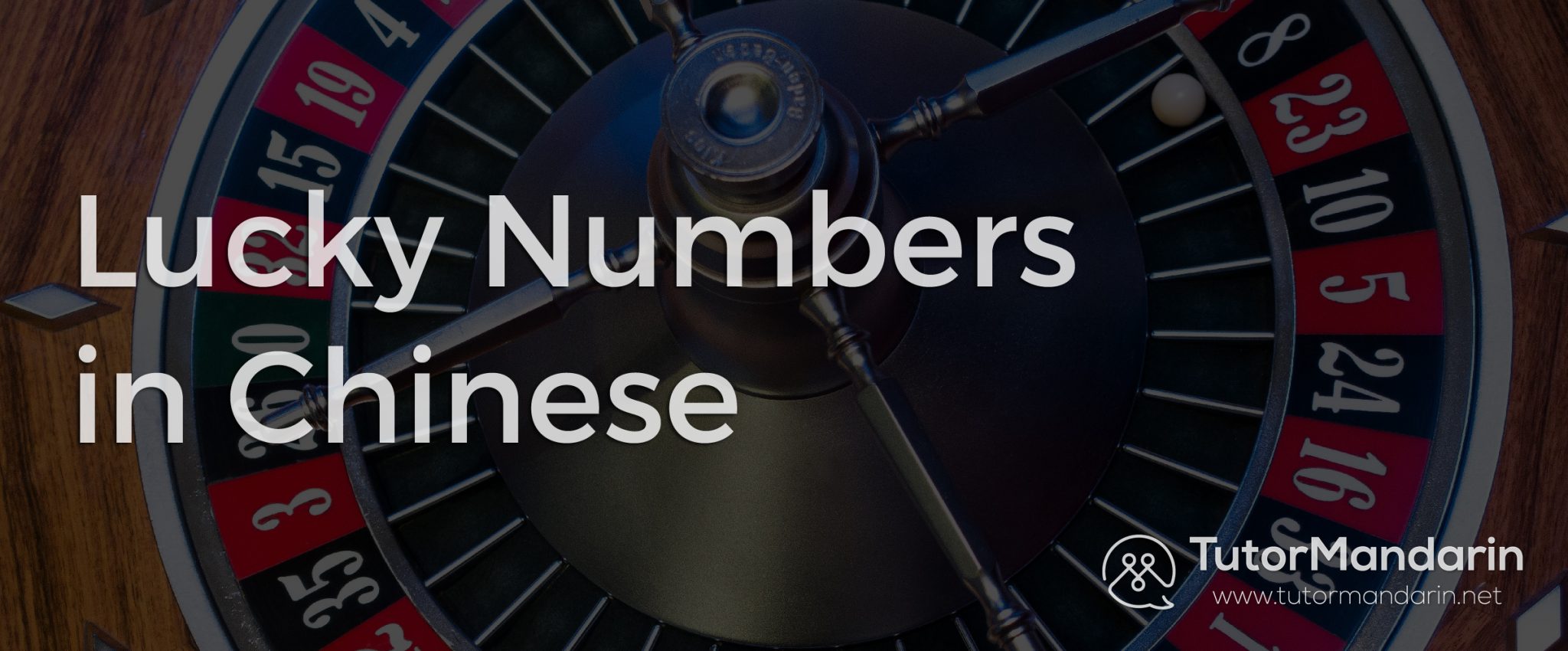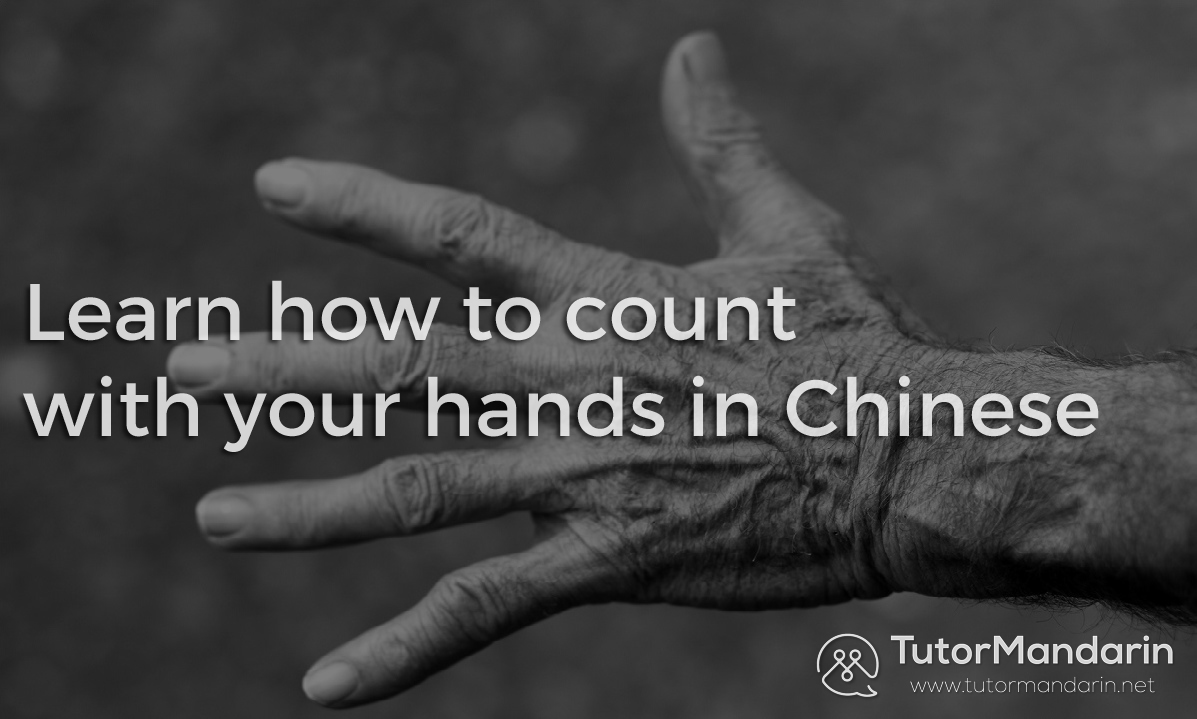
Contents
Chinese Number Gestures
Learning numbers and counting in Chinese with hands
We’ve learnt numbers in Chinese previously, so today let’s talk about something related ”Chinese hand counting”.
The beauty of the Chinese numerable signals is that you can count from one to nine just by using one hand. You don’t need to be a nine-fingered mutant!
For most people of western countries, it is quite surprising, when they see Chinese people using these gestures to order food. A lot of people don’t think about the possible differences, that might come up while counting with hands. Counting with hands is our everyday business, so we don’t think about it if we’re old enough.
You, however, have the chance to learn the rules of how to count with only one hand in Chinese. You could use them while ordering food at a noisy night market, or the next time you enter a Chinese restaurant with a large group, to tell the waiter how many people are in your group – with a quick flash of a single hand. Maybe 2 hands if you’re in a big group.
Even if you will learn how to count with your hands, it is even more important to be able to pronounce the numbers right. Otherwise, you might say “to die” instead of “four” if you pronounce 4 – sì wrong. TutorMandarin can help you to optimize your Chinese language skills in 1-on-1 classes with professional Tutors. Give it a try and sign up for a FREE trial right here, or at to bottom of this page to get started in counting perfectly in Chinese and a lot more.
But first, let’s start counting with your hands in Chinese
1 (一 – yī)
The index finger is extended!
**However, when you hear people talking about the actual number – for instance, when she’s giving you her phone number, it’s often called “yow” instead of “yí”.

2 (二 – èr)
The index and middle fingers are extended!
**Asians like to use this gesture to express “yeah, happy” instead of “peace”when taking pictures. So, they usually shout “YEAH” instead of “PEACE”.

3 (三 – sān)
The index finger and thumb are closed, the last three fingers are extended.

4 (四 – Sì)
The thumb is held in palm with the four fingers extended.

5 (五 – wǔ)
All five digits are extended. This might be quite familiar to you.
Counting up to 5 might not seem too difficult, but the more unfamiliar part of counting with your hands in Chinese starts with 6.

6 (六 – liù)
The little finger and thumb are extended, other fingers closed, sometimes with the palm facing the signer.
**This is the same as the hand symbol for giving someone a call.

7 (七 – qī)
The fingertips are all touching, pointed upwards
**Taiwanese gesture for seven is different from Mainland China.
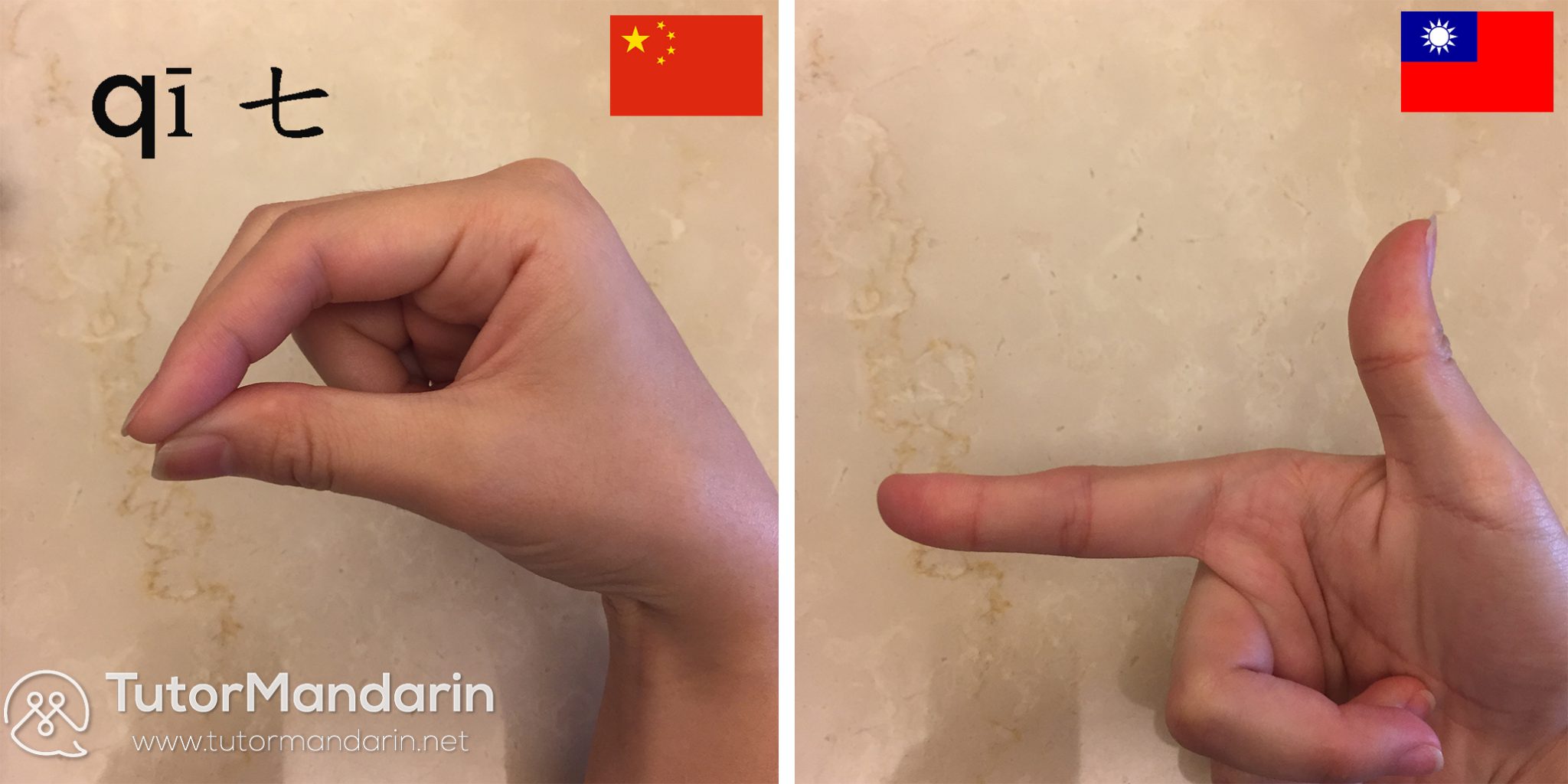
People’s Republic of China Republic of China
8 (八 – bā)
The thumb and index finger make an “L”, other fingers closed, with the palm facing the observer.
**Taiwanese gesture for eight is different from China.
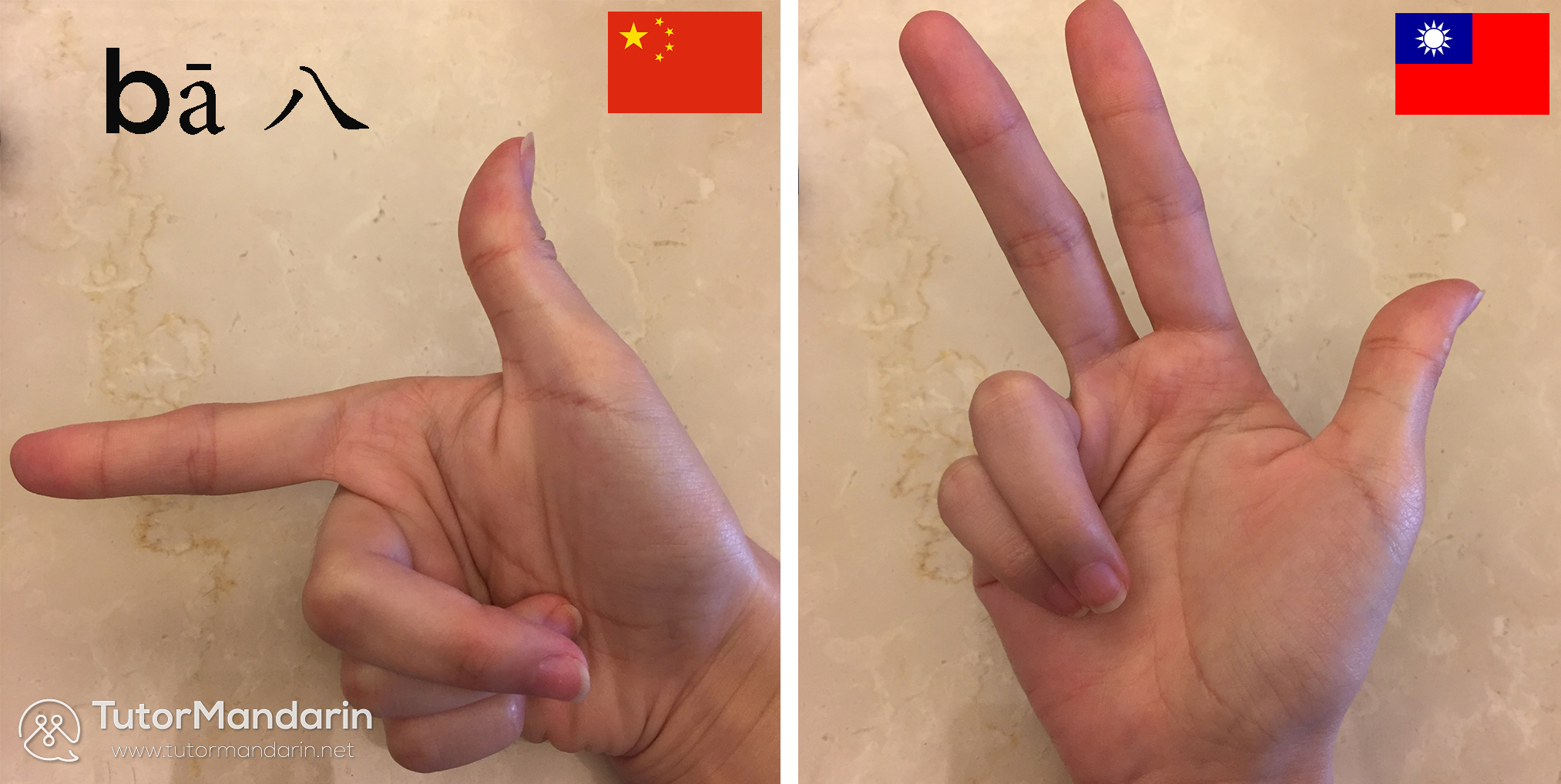
People’s Republic of China Republic of China
9 (九 – jiǔ)
The index finger makes a hook, other fingers closed, sometimes with the palm facing the signer.
**Note that this gesture means “death” in Taiwan. If you’re visiting Taiwan, you need to be careful with this one! But Taiwanese have also a gesture for 9 – Simply use the right one of our examples.
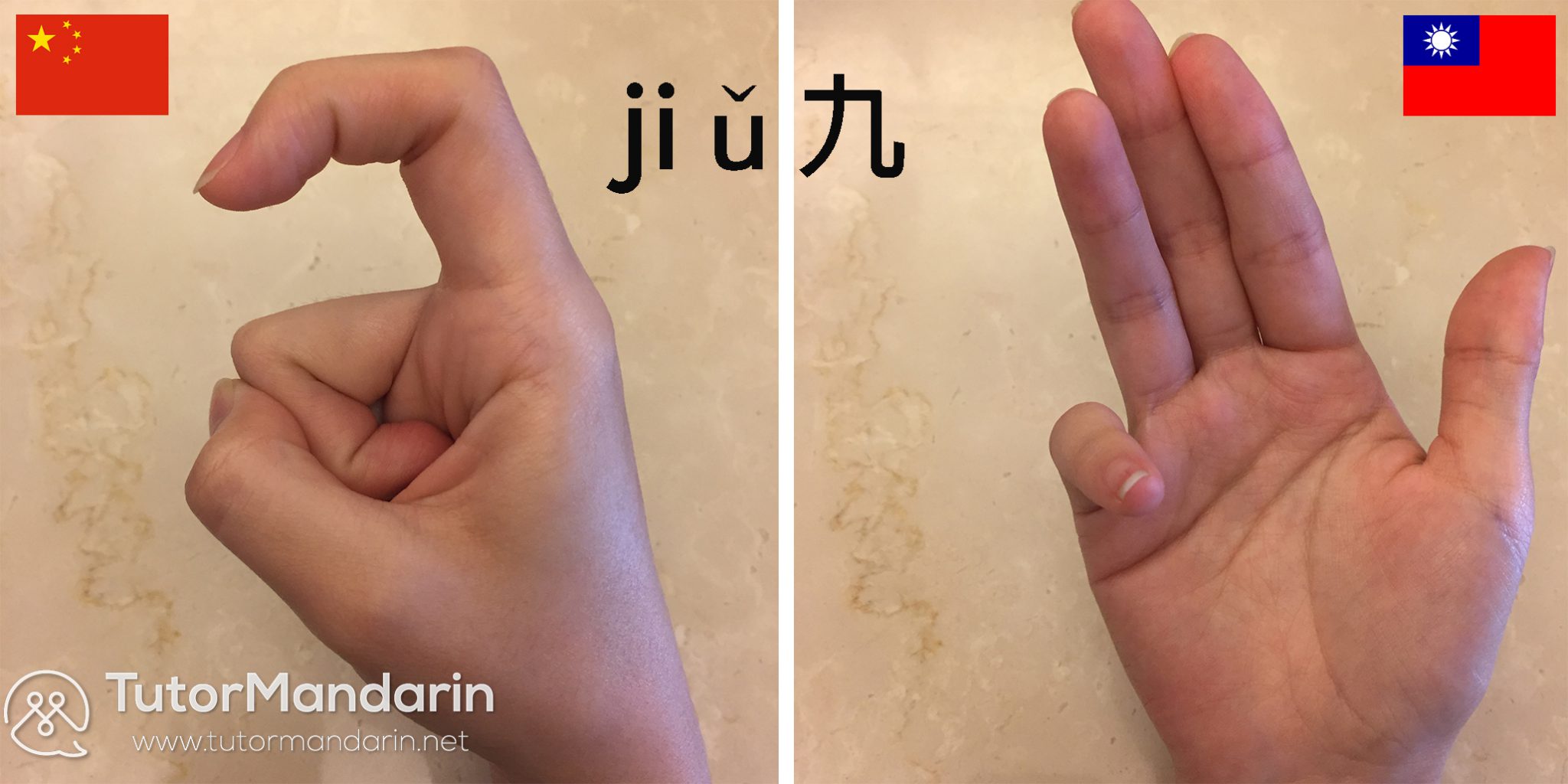
People’s Republic of China Republic of China
10 (十 – shí)
And finally, for you could use several ways to express! Choose the one that you prefer the most!
**Also, the middle one represents 零 (líng – zero), too.

So, now you can communicate with hand gestures! Isn’t it easy? Are you able to tell your birthday from these signs? Or how about your mobile phone number? Come and learn more fun stuff with us. Sign up our free trial to learn Mandarin and download the Chinese App for more Chinese language materials and to learn Mandarin online.




